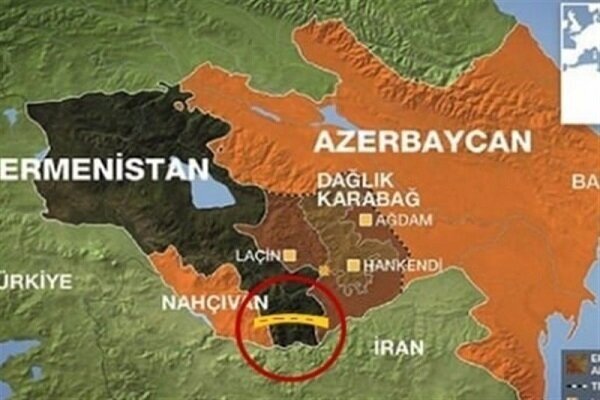How Baku is playing with fire—without getting burned
25.07
2025
By Mehdi Seyf Tabrizi, Expert in Azerbaijan Affairs
In recent days, relations between Baku and Moscow have reached an unprecedented level of tension in the history of the two countries’ interactions.
Fifteen years after the arrest and beating of several Azerbaijani citizens in Russia’s Yekaterinburg—an incident that resulted in the deaths of two Azerbaijani nationals—Baku responded in an unusually forceful manner for a post-Soviet state. Azerbaijani authorities not only accused Russian security forces of the premeditated killing of their citizens but also took measures such as canceling all Russia-related cultural programs, inspecting the Baku office of the Sputnik news agency, and arresting several Russian citizens active in IT and media sectors.
Photos published by Azerbaijani media outlets show that the Russians were beaten and detained on charges of drug trafficking and cyber fraud. These actions were accompanied by harsh criticism of Moscow in state-controlled Azerbaijani media, and Russian citizens in Azerbaijan now face constant scrutiny, occasionally including acts of violence. These responses appear disproportionate to the initial event. While force and abuses by security services have occurred in both Russia and Azerbaijan before, they had not previously led to diplomatic crises.
It seems that the deaths of the two Azerbaijanis in Yekaterinburg served as a pretext for Baku to strengthen its domestic and international position. These actions, described by some analysts as “diplomatic mischief,” are part of a calculated strategy to challenge Moscow’s influence in the South Caucasus and extract political and geopolitical concessions from Russia.
Causes of tension: Zangezur, the downed plane, and Moscow’s weakness
Baku’s harsh response came at a time when the two victims of the Yekaterinburg incident, brothers Hussein and Ziyaddin Safarov, had questionable pasts and were accused of organized crime and the murders of other Azerbaijanis in Russia 15 years ago. Baku ignored this and leveraged the situation to confront Moscow. According to The Washington Post, autopsies revealed that the two men died from severe beatings and internal bleeding.
Since the outbreak of the war in Ukraine, Russia—under the strictest Western sanctions—has become dependent on Azerbaijan as a key partner for logistics and infrastructure projects, such as the North-South transit corridor (Russia-Iran-India). Yet, Moscow’s influence in the South Caucasus has sharply declined. Russian peacekeepers deployed in Artsakh after the 2020 Armenia-Azerbaijan war neither responded to Baku’s blockade of the region nor intervened in Baku’s 2023 military operations, which led to the complete elimination of the Nagorno-Karabakh (Stepanakert) administration.
Baku’s first attempt to impose new rules on Moscow came in late 2024, when the Azal plane was mistakenly shot down by Russian air defenses. The plane flying from Baku to Grozny crashed in Kazakhstan, killing 67 people. Meanwhile, in the first hours of the incident, Baku demanded that those responsible for the incident be punished without undergoing expert procedures. This tension was eased only thanks to Vladimir Putin’s personal apology, the payment of compensation, and the installation of a monument to Heydar Aliyev in Moscow. This experience showed Baku that it could get some political benefits from confronting and challenging Moscow, and from Baku’s perspective, the Yekaterinburg incident could be a new opportunity to continue this strategy.
Diplomatic mischief: Baku’s tools for pressuring Moscow
Baku’s provocative actions that can be called “diplomatic mischief” can be seen across several dimensions:
Media provocations and public criticism of Moscow
Baku’s state media have unleashed an unprecedented wave of criticism against Moscow, which, according to political analyst Arif Yunusov, has been directly directed and coordinated by Baku government officials. This criticism extends not only to the Yekaterinburg incident, but also to Russia’s overall policy in the South Caucasus and even to Moscow’s tacit support for Armenia in the past. According to the Jamestown Institute, this media campaign was designed to mobilize domestic public opinion against Russia and to draw the West’s attention to Baku’s “independence” from Kremlin policies. Thus, Toral Ganjali, a member of the Baku Republic parliament, issued a harsh statement accusing Russia of “chauvinism, discrimination, and Islamophobia” and asserting that the Kremlin’s policies toward immigrants and minorities are systematic.
Symbolic actions and the reduction of Russian cultural influence
The cancellation of all Russian-related cultural programs, including concerts and joint events, as well as the closure of the Russian House (Rossotrudnichestvo) office in Baku, were signs of an attempt to reduce Moscow’s cultural influence. According to Baku media, this cultural center was accused of facilitating Russian intelligence activities in Baku, and its closure sent a clear message to the Kremlin that Baku would no longer tolerate Moscow’s indirect influence. According to Al Jazeera, this strategy to demonstrate Baku’s independence also included the cancellation of parliamentary meetings and visits by high-ranking Russian officials, such as Deputy Prime Minister Alexey Ovchuk.
Arrests of Russian citizens and targeted charges
The detention of staff from Sputnik’s Baku office and several other Russian citizens, some identified as agents of the Russian Federal Security Service (FSB), was one of Baku’s boldest moves. Euronews reported that these men were charged with large-scale fraud, illegal entrepreneurship, and money laundering. However, analysts noted that published photos showing signs of beatings appeared to be a deliberate signal to humiliate Moscow and demonstrate Baku’s ability to retaliate against the Kremlin. For example, one X-Network post suggested the arrests were a direct response to Azerbaijani citizens facing violent treatment by Russian police in Yekaterinburg.
Aligning with Moscow’s rivals and geopolitical provocations
A phone conversation between Ilham Aliyev and Ukrainian President Volodymyr Zelenskyy, amid a crisis between the two capitals and Baku’s declaration of support for Kyiv against Russian “terrorism,” was, according to The New York Times, a deliberate provocation toward the Kremlin. During the call, Zelenskyy supported Baku against Russian “threats,” while Kremlin Spokesperson Dmitry Peskov described the call as Ukraine attempting to “add fuel to the fire.” Furthermore, strengthening ties with Turkey—such as proposals by former Azerbaijani official Eldar Namazov to establish a Turkish military base in Azerbaijan—indicates Baku’s attempt to replace Russian influence with Turkish support. According to Al Jazeera, Azerbaijan’s success in 2020, aided by Turkish military support and the use of UAVs, gave Baku greater confidence to challenge Moscow’s dominance in the South Caucasus. Some X posts also discuss a potential “Zangezur transit passage” agreement between Turkey, Azerbaijan, and Armenia, aimed at excluding Russia from regional balances—a notion that seems more like media speculation.
Taking advantage of Moscow’s regional weaknesses
Baku is keenly aware of the waning Russian influence in the South Caucasus. According to Kyiv Independent, Russia’s withdrawal of peacekeepers from Karabakh and its non-intervention in Baku’s 2023 military operations against the region were interpreted by Baku as signs of strategic weakness. Coupled with Western sanctions against Moscow due to the war in Ukraine, this has allowed Baku to pressure Russia through provocative measures, such as limiting the operations of Russian state media like Sputnik. According to the Russian Riedel analytics website, Azerbaijan has even used Russia-linked cyberattacks against its own government websites as a pretext to tighten measures against Moscow.
Baku’s domestic and foreign interests
Baku’s provocations are driven by two main factors. Domestically, external victories have been a key source of Ilham Aliyev’s popularity, particularly since the 2020 Second Karabakh War. The country faces challenges like economic inequality, low income for the majority, and suppression of any uncontrolled political or civic activity. Even Baku’s land borders have largely remained closed since the COVID-19 pandemic, especially the border with Iran, reflecting the government’s sense of insecurity.
Meanwhile, the success in reclaiming Karabakh no longer unites society as before, and direct conflict with Armenia carries high risks due to potential lack of Turkish support. In these circumstances, tension with Russia as an acceptable enemy is seen as an effective tool for social cohesion and to divert public opinion from domestic problems and the unstable legitimacy of Aliyev, who has inherited power since 2003. On the international stage, Baku has long tried to present itself as a reliable energy partner and a stable, secular alternative to Western organizations in the region, but domestic pressures have undermined this image. Current tensions with Moscow allow Baku to shift Western attention from human rights violations to its “independent” or even “anti-Russian” stance. This position—particularly public support for Ukraine and Aliyev’s recent call with Zelenskyy—helps Baku appear as a strategic Western ally against Russia, reducing Western sensitivity to domestic issues. Middle East Eye notes that Baku has used Russia’s isolation due to the Ukraine war to expand influence in energy markets and transit corridors, especially by strengthening ties with Turkey.
Managing a crisis-prone border and tensions
Despite these confrontations, Baku is careful to avoid uncontrollable escalation. Diplomatic relations remain intact, agreements are being implemented, ambassadors have stayed in place, and trade is not restricted. This demonstrates that both sides can quickly de-escalate tensions and return to normal relations if needed. According to Azerbaijani experts, the Republic of Baku seeks equal relations with Moscow, not subordination to it, like Belarus. The passive response of Russia, embroiled in the war in Ukraine, has allowed Baku to continue these tricks without serious costs. The Kremlin did not react strongly to the arrests and beatings of its citizens in Baku, while Russian Foreign Ministry Spokesperson Maria Zakharova described the bilateral relations as a “strategic alliance,” blaming Ukraine for the “temporary tension.” However, in recent days, there has been a lot of negative reaction from Russian public opinion and political and economic activists to Baku’s policy, and this segment of Russian society has called for an intensified approach to the political and economic interests of the Baku Republic in Russia: thus, some private commercial markets have obstructed the activities of Azerbaijani companies, or others have called for the return of the “Zagalata” and “Balakan” regions to Dagestan. These territories are inhabited by Lezghins, Avars, and Dagestanis, who have been the targets of some Russian nationalist projects in the past.
Outlook: Playing with fire without getting burned
Due to economic dependence on Russia—including supply chains for spare parts, fuel, and agricultural products—Baku cannot risk fully severing relations with Moscow.
Forty-six percent of transfers to Azerbaijan come from Russia, where over three million Azerbaijanis live and work. Increased pressure on these migrants by Moscow or forced return to Azerbaijan could impose serious economic and political costs on Aliyev’s government. Baku’s approach resembles Turkey’s foreign policy: aggressive actions without fully severing relations or risking confrontation between different power blocs. Most likely, the current tensions, including the downed aircraft incident, will ease without serious consequences for bilateral relations. Yet Baku’s boldness signals significant change in the South Caucasus.
Actions of this type by post-Soviet states, carried out without concrete responses from Moscow, suggest that Russia is no longer seen as a dominant power whose interests must be respected in Central Asia and the Caucasus. Restoring that position will be a major challenge for the Kremlin in a region where its influence is steadily declining.





